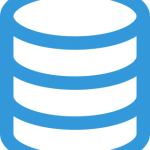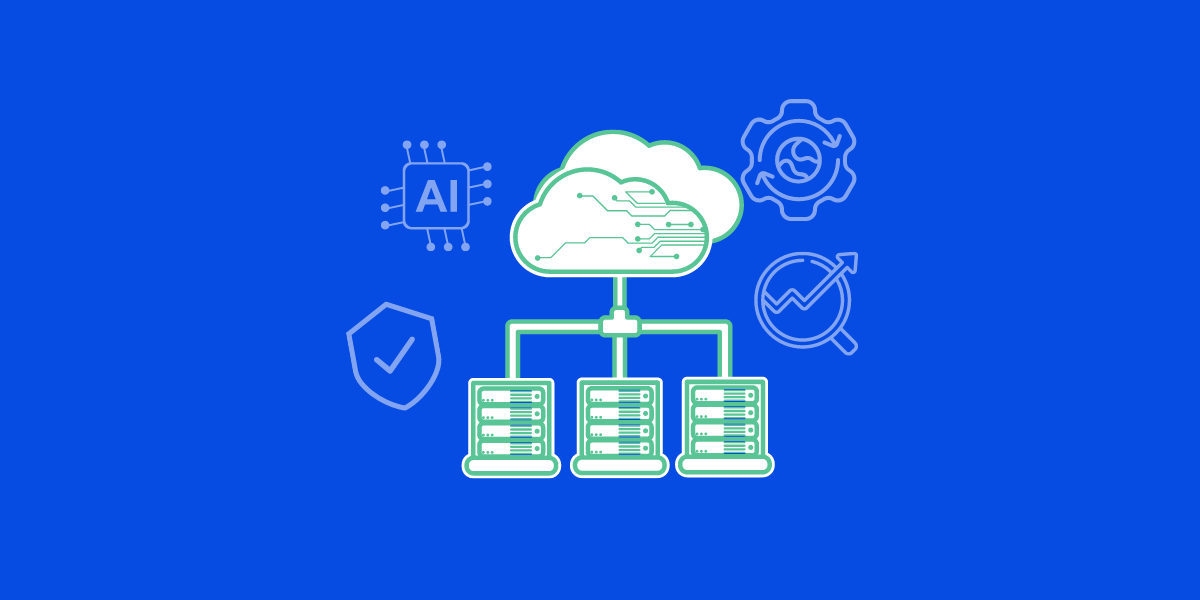How much does it cost to hire an offshore MongoDB developer?

Average cost of MongoDB
development (USD)
The average rates for offshore software development services based on the YouTeam platforms’s data: 300+ outsourcing companies with a joint talent pool of 20,000+ software engineers.

MongoDB Developer Salary vs. Rates on MongoDB Software Development Services: what’s the difference? Our data includes not only salary itself, but bonuses, non-financial benefits, paid vacations, office costs, and taxes for each developer. So you can see the final amount that should be paid for the work of an outsourced senior MongoDB developer.
MongoDB Hourly Development Rates
by Country
Latin America
Eastern Europe
181 Best MongoDB Developers For Hire on YouTeam in July 2024

Marcelo S.
Full Stack Developer


Jelena I.
Front-end developer with an eye for details. Responsible and like to be proud of my work




YouTeam is the #1 solution for on-demand engineering staff augmentation in the world. Our YCombinator-backed platform unites resources of 300+ top development agencies of Eastern Europe and Latin America in one talent tool. This makes us first who can find the best available matches for each project.
Why hire engineers with YouTeam








Related Technologies


NodeJS
NodeJS is a back-end JS runtime environment used to create network apps. Cost of NodeJS development

SQL
SQL is a programming language used for data management and stream processing.
Cost of SQL development

Angular 2
Angular (or Angular 2+, Angular CLI) is an open-source web application framework based on TypeScript. Cost of Angular 2 development

Read about Work with MongoDB Developers


YouTeam Editorial Team


Iryna Bilyk


Understanding MongoDB as a
programming language
- MongoDB - what is it?
- What is MongoDB used for?
- MongoDB tools
- Who is a MongoDB developer?
- MongoDB developer experience levels
- Tasks and responsibilities of MongoDB developer
- Required skills of a MongoDB developer
- Types of MongoDB developers: freelancers, in-house engineers, outsourced programmers
- How to write the MongoDB project description?
- MongoDB developer hard skills assessment questions
MongoDB is an open-sourced database that uses a flexible way of storing data which makes it highly popular among developers around the world. It was created to replace MySQL as it is an easier way to work and collect data. The main advantage of this database is the way it stores and keeps data: instead of storing the data in a table of rows, it keeps files in BSON format, for apps to easier access and converts them to JSON files.
There are also some advantages of MongoDB:
- High-performance level and speed. Storing data in the RAM allows keeping the process fast.
- Flexibility. Having dynamic architecture allows working with non-structured data and adapting to a changeable business.
- User-friendly interface and quick setup. It is easy to install and set up. It also allows developers to use NoSQL structures.
- Horizontal scale-out. This type of scaling, unlike other SQL databases, increases storage capacity.
Companies and development teams can use MongoDB in many various ways.
- Integration of large amounts of data. If you need to integrate a large amount of data into the database, MongoDB can deal with it due to its flexibility and scalability.
- Description of data structures. This option means that the database allows describing structures and allowing data-name changes in generations of documents.
- Provision of data for high-performing applications. Unlike other databases, MongoDB is scalable enough to proceed with multiple data transactions in huge databases.
- Cloud applications support. MongoDB has many ways of configurations, so if you need to run the cloud application, you can rely on this database.
- Collaboration support. In document databases, each team can control different parts of the document, which increases collaboration.
Many companies and developers use MongoDB for several reasons:
- Deployment options. This database is available for almost every public cloud, such as AWS (Amazon Web Services), Google Cloud, and Azure.
- Document model. Developers can work faster as document model works well in storing data with any modern programming language.
- Scalability. MongoDB allows to store and keep huge amounts of data and traffic.
- Ability to start to code quickly. Developers who just installed it can begin to code right away.
- Large community. There is a large community worldwide with a mature ecosystem which makes it easy to get help.
MongoDB was created in 2007 by MongoDB Inc., which develops and provides support for NoSQL databases and MongoDB.
You can use the tools described below to ease the data storing and managing of the database.
- MongoDB Shell. It is an interface based on JavaScript for MongoDB. You can easily and quickly connect to MongoDB, update available data operating settings, and also perform administrative operations. MongoDB Shell has expanded the command-line interface–it is filled with syntax intelligent autocomplete, highlighting, and contextual help.
- MongoDB Compass. It is a powerful GUI that lets you easily manipulate, aggregate, analyze and quire your data in MongoDB. It provides detailed schema visualizations, great querying abilities, and even the option of real-time performance indicators measuring. This tool has three main versions: a full version, a read-only version, and an isolated edition.
- MongoDB Cloud CLI. You can manage your Cloud services, such as Atlas, Cloud Manager, and Ops Manager, by using the MongoDB CLI (Command Line Interface). You can test, script, and make other actions just by using the MongoDB Cloud CLI.
- MongoDB Data API. This tool helps to read, update, delete, and modify MongoDB Atlas data without using any additional drivers and libraries, and other connectional tools.
- MongoDB Command Line Database Tools. It is a collection of command-line tools which you can use with MongoDB deployment. As these tools are created apart from MongoDB, you can receive updates frequently with more useful updates.
- MongoDB BI Connector. MongoDB Connector for Business Intelligence (BI) allows users to create queries with SQL for graphing, reporting, and visualizing data from the MongoDB server.
MongoDB developer is a specialist in the IT field who develops and maintains applications and software using Mongo tools. It is essential for them to know the difference between the SQJ and NoSQL databases. They also should know the syntax of MongoDB. MongoDB is also widely used among backend developers and data analysts as it significantly easies their work.
- Junior MongoDB developer
Junior MongoDB developers have from zero to two years of experience. They should have basic knowledge of Mongo development, knowledge of programming language, and little expertise in cloud computing and database architecture. Junior developers usually work in teams with more experienced developers. In such conditions, they learn from simple tasks, learn how to communicate with other teammates, and deal with set tasks. - Middle MongoDB developer
Unlike junior MongoDB developers, middle developers should have from 3 to 5 years of experience. They should have more advanced knowledge of Mongo development, more than one programming language, understand database architecture well, and be able to provide ideas and create high-quality software. - Senior MongoDB developer
Senior MongoDB developers should have a good experience level (from 5 years). This experience level requires advanced knowledge of databases, MongoDB, several programming languages, and potential limitations within MongoDB. They can also be the DBA (Database Administrator) as, during such time of working, they acquire the needed skills. Senior software engineers also manage junior developers and projects what requires them to have strong management and communication skills.
MongoDB developers often have the following responsibilities:
- Develop, configure and maintain MongoDB models.
- Write and run processes of backup and recovery.
- Keep documentation of databases and architecture clear.
- Design and develop new ways of indexing.
- Upgrade databases using patches.
MongoDB developers need to have a set of skills, which we will describe below.
- Experience with Big Data solutions, for example, Hadoop.
- Advanced knowledge of programming languages (Python–MongoDB has a native Python driver so these two could work together well; C++, Go, Java, and PHP).
- Experience in developing a system that works with huge amounts of data and transactions.
- Experience in full-stack development using MongoDB.
- Experience in architecting web applications and web portals.
If you need to hire a MongoDB developer, you have several options: freelancers, in-house developers, outsourced engineers. Here we will discuss these three types of programmers.
- Freelance MongoDB developers
The first option you can find is a freelance MongoDB developer. These developers usually don’t belong to any company, which means they will leave as soon as the project ends. They are a good option for companies with a small budget or if the project is short-term. On the other hand, it may be a problem to find the developer with the best matching skills as many skilled developers already have interesting projects or they work in software development companies that can provide them with interesting projects and clients. - In-house MongoDB developers
If you need developers at the stage of core development, you should hire in-house developers. As they work in your company, they will be dedicated to the project and will provide ideas on how to improve and develop the product. Although the team of in-house engineers is highly dedicated and skilled, there are some drawbacks, such as high expenses on technologies, tools, bonuses, and extra spending. - Outsourced MongoDB developers
The third option you can choose is outsourced MongoDB developers. You can hire the with YouTeam outstaffing model, which provides you with top-notch full-time engineers. Outsourced developers are a good option if you need to hire extra specialists for your in-house development team or get an independent development team (you can hire not only the team but also a product manager who will help the development team to easily integrate into your company).
You need to tell in detail about the company, what project you want to do and how it will contribute to the business, in general, to attract the developers with an interesting project. It is also important to describe all the requirements for the developer to get the best matching candidates. You should point out the next things to write a good MongoDB job opening:
- Point out the job title and the list of tech and soft skills requirements.
- Write your expectations about the project.
- Describe shortly your company and the field you work in (it will help developers who have some expertise in your industry to find the best solution).
- Write about the development stage (it may be either the development from scratch or maintenance work).
- List responsibilities the developer will have and describe the team.
If you need to test the candidate’s skills during the interview, you can ask them some of the following questions:
- What are some of the advantages of MongoDB?
- What is a Collection in MongoDB?
- How does Scale-Out occur in MongoDB?
- How to perform queries in MongoDB?
- What are the data types in MongoDB?
- What are Geospatial Indexes in MongoDB?
- What is the Aggregation Framework in MongoDB?
Tell us about your plans on a brief intro call and we’ll start the matching process.
FAQ about Hiring MongoDB Developers
Why hire MongoDB coders with YouTeam?
With YouTeam, you can find and hire developers in less than 48 hours which makes us the fastest solution on the marketplace. Another reason is the quality of the developers. We provide only top-notch developers with extensive experience from reliable software development agencies.
How does YouTeam vet MongoDB software developers?
In YouTeam, we vet candidates in some stages. Firstly, we vet every software development company we work with—all of them are hand-picked and approved by our specialists Then we pre-interview the selected developers to find the best candidates who meet all the customer’s requirements. Then we send them to approval to the client, who later has the interview with candidates to get the best one based on their experience and skills.
How much does it cost to hire the best MongoDB developers using YouTeam?
The average salary of MongoDB developers depends on many factors: location, experience, and skillset. In YouTeam, the average hourly rate of MongoDB developers is $55.
Where are the best offshore MongoDB engineers located?
The best offshore data engineers are located in such destinations as Latin America and Eastern Europe. Due to the rapid technological growth of these areas, there is also an increased number of skilled developers. Due to the lower cost of living, the developers’ rates in these countries are much lower than in the US. It is a great and cost-effective solution for US companies that struggle with tech talent shortage now as there is a wide pool of skilled software engineers offshore.
How is YouTeam different from freelancer portals for hiring MongoDB developers?
YouTeam doesn’t offer freelance developers but only candidates from reliable software development agencies. These developers will have the required level of experience and all the needed tech and soft skills. In case the developer has to leave the project due to unexpected reasons, we will replace them with engineers of the same experience level and skills without any harm to the project.
Why hire a team of MongoDB developers?
It is a good option to hire a team of MongoDB developers as the working process goes faster and each developer has the specific tasks they are responsible for. It makes the working process more interesting and engaged. The performance rate is also high as these engineers are more motivated. Another advantage is that if one of the developers leaves the project, other members can distribute the task between each other, which won’t influence the quality of the project.
How MongoDB developer salary is different and why?
The MongoDB salary depends on the location of the developer and their skills. Offshore developers usually live in countries where the cost of living and base salary are lower compared to the US. Due to Payscale salary data, the median salary in the US for MongoDB developers is about $91K per year, but in such big cities as Austin, New York, Seattle, and San Francisco this number may be even more due to the higher cost of living. In countries of Latin America, the salary range is lower–from $25K to $37K. In Eastern Europe, the rates vary from $15K to $23K per year.


